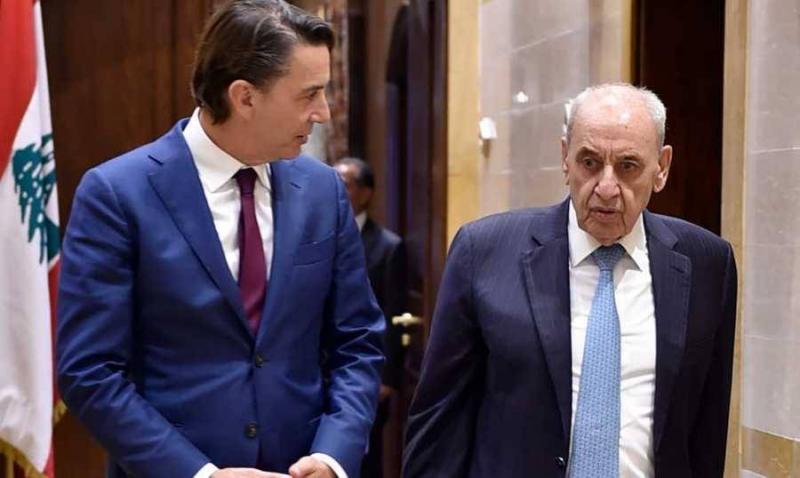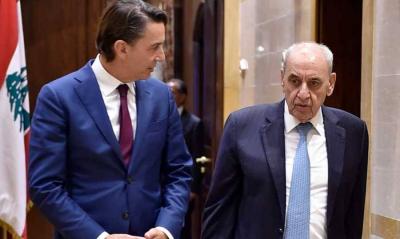The field scene at the southern Lebanese border with Israel yesterday overshadowed the diplomatic landscape, echoing the mission of Amos Hochstein, Senior Advisor to the U.S. President for Energy and envoy to Lebanon and Israel, following his latest shuttle diplomacy between Tel Aviv and Beirut. The high escalation level observed on the front line extended beyond field confrontations and spilled over into a verbal war directly between the Israeli military and officials, on one hand, and Hezbollah's Secretary-General Hassan Nasrallah, who clearly aimed to capitalize on the impact of the video shock of the "Hodhod" over Haifa to threaten Israel against launching a comprehensive war on Lebanon, hinting at an incursion into the Galilee and fighting without limits or controls. Meanwhile, Israel appeared to frame the killing of four Hezbollah fighters yesterday as part of its retaliation against the party's aerial unit, as reported by "An-Nahar."
Nonetheless, the clamor of mutual threats amid the return of tension to the field reality did not obscure precise indicators concerning the significant U.S. pressure being exerted, supported by many regionally influential countries, to prevent the Lebanese-Israeli front from unraveling. This translates into the warning Hochstein relayed to Beirut the day before yesterday. According to diplomatic circles following the Lebanese atmosphere related to Hochstein's movement, official references, particularly the Speaker of Parliament and the Prime Minister, were in a state of anticipation for communications from Hochstein to brief the Lebanese side on the "follow-up" discussions he conducted with Israeli Prime Minister Benjamin Netanyahu on Tuesday evening after returning to Tel Aviv from his visit to Beirut.
These circles indicate that the heated facts on the ground do not mean that Hochstein's mission has halted or slowed down; rather, the data confirms that he is proceeding without retreat, implicitly reflecting that although he has not made a breakthrough regarding a ceasefire and confrontations on the Lebanese front, he has not failed in his endeavor to restore control over the field situation based on rules of engagement that prevent a large-scale war from erupting. It is noteworthy that the U.S. envoy is implementing a policy of balanced warnings to Israel regarding the risks of dragging it into conflict with Iran in any limited or extensive war, and to Lebanon concerning the dangers of allowing Hezbollah to lead it into a devastating war.
The most serious assessments following Hochstein's latest mission indicate that the hour of truth regarding the fate of the Lebanese front is linked to the conclusion of the ongoing Israeli operation in Rafah, which Israel informed Hochstein is nearing its end. Only then will the true intentions and plans, especially those concerning the northern front with Lebanon, be revealed. Information circulated yesterday suggested that Hochstein assured caretaker Prime Minister Najib Mikati that the atmosphere is positive concerning U.S. President Joe Biden's initiative related to a ceasefire in Gaza and that Qatar is striving diligently to finalize the matter. Data pointed out that Hochstein affirmed that things are under control and that the atmosphere remains positive regarding the war between Lebanon and Israel, according to "An-Nahar."




